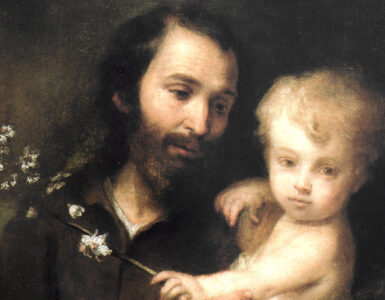In this reflection on prayer I will attempt to describe private forms of prayers that are better designed to create the spiritual environment in which God reveals to us who we are, vis-à-vis who we are not; where we truly stand in relation to him and to people; and whether or not we are on the right path to our final destination.
Oftentimes, in our collective prayer we have to sacrifice our personal gusto and preferences in praying to the good of the whole group assembled around the Lord. That is why we find more personal satisfaction in our private prayer. However, let me remind you, again, that true prayer has to be founded, inspired and guided by God’s Word. Outside of the scope of God’s Word there is no true prayer. This is how true prayer enables us to rejoice all the time (cf. Philippians 4:4)
What is of paramount importance for benefitting from private prayers is the right environment, a favorable inner disposition (cf. 1st Samuel 3:10) [“Speak, o Lord, for your servant is listening”] and the most resolute pursuit of silence. Jesus used to spend entire nights in prayer to the Father in order to rest in the Father’s embrace, to learn the Father’s will, to bask in the Father’s presence and to find out what awaited him according to the Father’s design. For example, this is how, when he began his public ministry at Nazareth, he could apply to himself the prophecy from the prophet Isaiah (cf. Luke 4:18). This is how, in the right setting and silence of the desert, John the Baptist could find out who he was not and that he was simply the “voice of one crying out in the desert, “Make straight the way of the Lord,”(cf. John 1:23)
About the right environment: St. Alphonsus de Liguori, one of the most famous spiritual writer, suggests to make ourselves as comfortable as possible when we pray in private. Of course he knew that there are times when we are so anguished or so grieving over our errant ways that we need to pray kneeling down and with our head held low. However, we should be comfortable as we meditate on the Lord’s words of Life; or we contemplate a scene about which we read in the Gospel; or we close our eyes and bask in the Lord the way a sunbather bathes in the sun; or we hang out with the Lord without saying a single word; or we open our mind and heart to his words of comfort and light, and so on. We should imagine the coziest moments with our beloved: whenever we pray to God in private, if possible, we should recreate the same comfortable, environment. We should seek a favorable inner disposition. I think that here we show how wise or foolish we are.
The right inner disposition should be of a person who is extremely eager to hang on every word that the Lord whispers in the ears of his/her soul. Jesus urges us to pray in the secret setting known to the Father, only after we have closed the inner door of our heart (cf. Matthew 6:6). For this to succeed and bear much fruit we have to approach our personal prayer with the deep-seated conviction that the Lord knows already what we need (cf. Matthew 6:8) but we are much more eager to listen and to experience intensely, existentially, with our whole self, what he has to say and wants so much to do to us.
Babbling one prayer after another, mechanically, with our heart lukewarm or, at best, focused on what we set out to get from the Lord would show the full extent of our foolishness and lack of appreciation of the size of the Father’s heart! It would also display mental density because, by the obsessive and relentless repetition of prayer made of words, we would, de facto, try to prevent God from talking to us. That is why, as a rule of thumb, gleaned from all the saints without exception, we should know that the lowest form of personal prayer is the one which involves words and the highest form of prayer uses no words at all!
This doesn’t mean that a prayer like the Rosary is to be avoided. Quite the opposite can be true. I did not say that it is true, but that it can be true; it depends on how we recite the Rosary. I am speaking now as a ”Rosary junkie.” Automatically I reach for my beads to fill any moment that I have to spend waiting for something beyond my control. This happens because the contemplation of the mysteries of our salvation and the Hail Mary’s whispered unhurriedly create a soothing sensation of rest in the Lord. As the soul rests, it opens itself to the reassuring and comforting and, occasionally, very challenging voice of the Lord. The Rosary, prayed the proper way can be the perfect substitute for the official prayer of the Church: “the Liturgy of the Hours.” The Rosary doesn’t need the Breviary; it doesn’t even need the beads as we can use our fingers to count the Hail Mary’s.
The more we develop, with the help of the Holy Spirit, the need for prayer understood as constant awareness that our life is unfolding around the clock under the watchful eye of our Heavenly Father and it is secure in his powerful yet gentle hands, the more we would have our eyes opened to see how truly our days and nights are packed with favors from the Lord and, thus, most of our responding to the entireties of the Lord would be taking the form of grateful praise and glory-giving.
Prayer filled with silence and eager listening to the Lord would not only calm our restlessness and fears, but would reset our priorities straight, rearrange our concerns and worries, actually transforming them into an orderly plan for action so that we would carry out our duties and assignments without dispersing energies, without being consumed by apprehensions, without hesitating and wasting time to make decisions, because the plan of action would be set by the Holy Spirit himself while we were listening intently and our mind was enlightened from above.
In conclusion, for us to learn to pray aided by the Holy Spirit requires deep humility to let go of our old ways of praying, unless they were truly founded, inspired and guided by God’s Word. We ought to let the Holy Spirit create intense moments of closeness and rest in the Lord so that our whole days are filled with the awareness of the Lord’s love and care for us and, thus, even our nights will be more restful, calmer and more capable of restoring our energies. If we make it a habit to be aided by the Holy Spirit in our personal prayer, our whole life will become more productive and more certain that it is always sustained by the unfailing love of our Lord and God. We will know who we are; we will be kept from pretending to be who we are not and genuine rejoicing will remain with us in spite of the size of the cross on our shoulders.






























